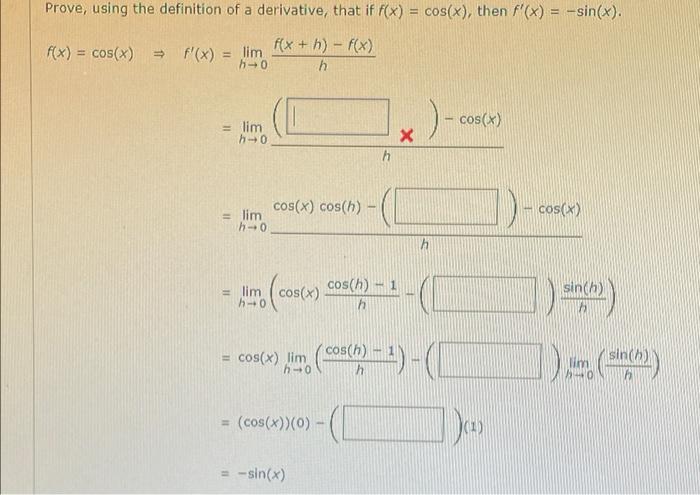Answered step by step
Verified Expert Solution
Question
1 Approved Answer
Prove, using the definition of a derivative, that if f(x) = cos(x), then f'(x) = -sin(x). f(x) = cos(x) = f'(x) = lim h0

Prove, using the definition of a derivative, that if f(x) = cos(x), then f'(x) = -sin(x). f(x) = cos(x) = f'(x) = lim h0 f(x + h) - f(x) h = lim h10 = lim h-0 cos(x) cos(h) - cos(x) X h cos(x) = lim cos(x) = h-0 cos(h) - 1 sin(h)) h cos(x) lim (cos(h) - 1)-( h10 = (cos(x))(0) -sin(x) lim (sin(h))
Step by Step Solution
There are 3 Steps involved in it
Step: 1

Get Instant Access to Expert-Tailored Solutions
See step-by-step solutions with expert insights and AI powered tools for academic success
Step: 2

Step: 3

Ace Your Homework with AI
Get the answers you need in no time with our AI-driven, step-by-step assistance
Get Started


